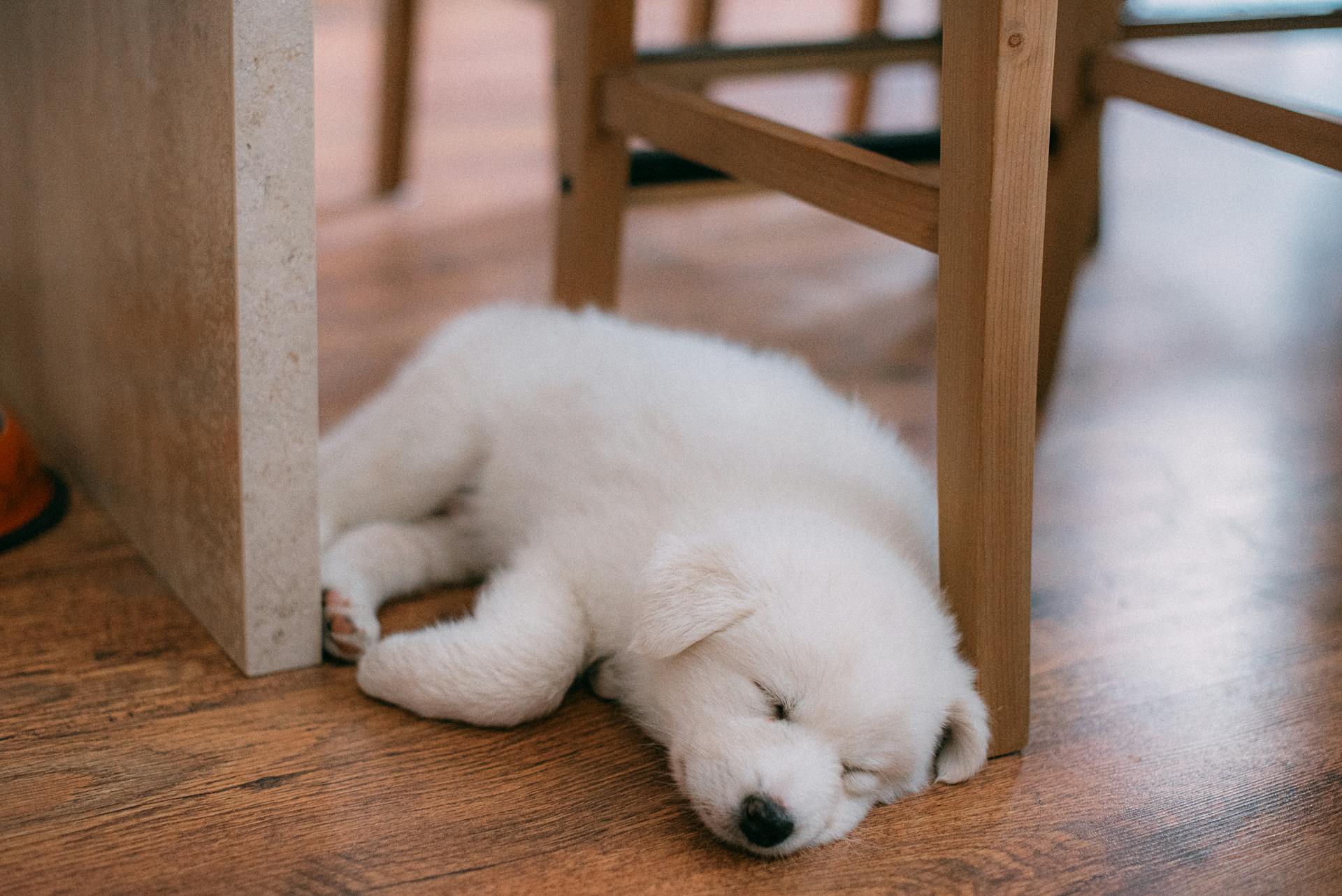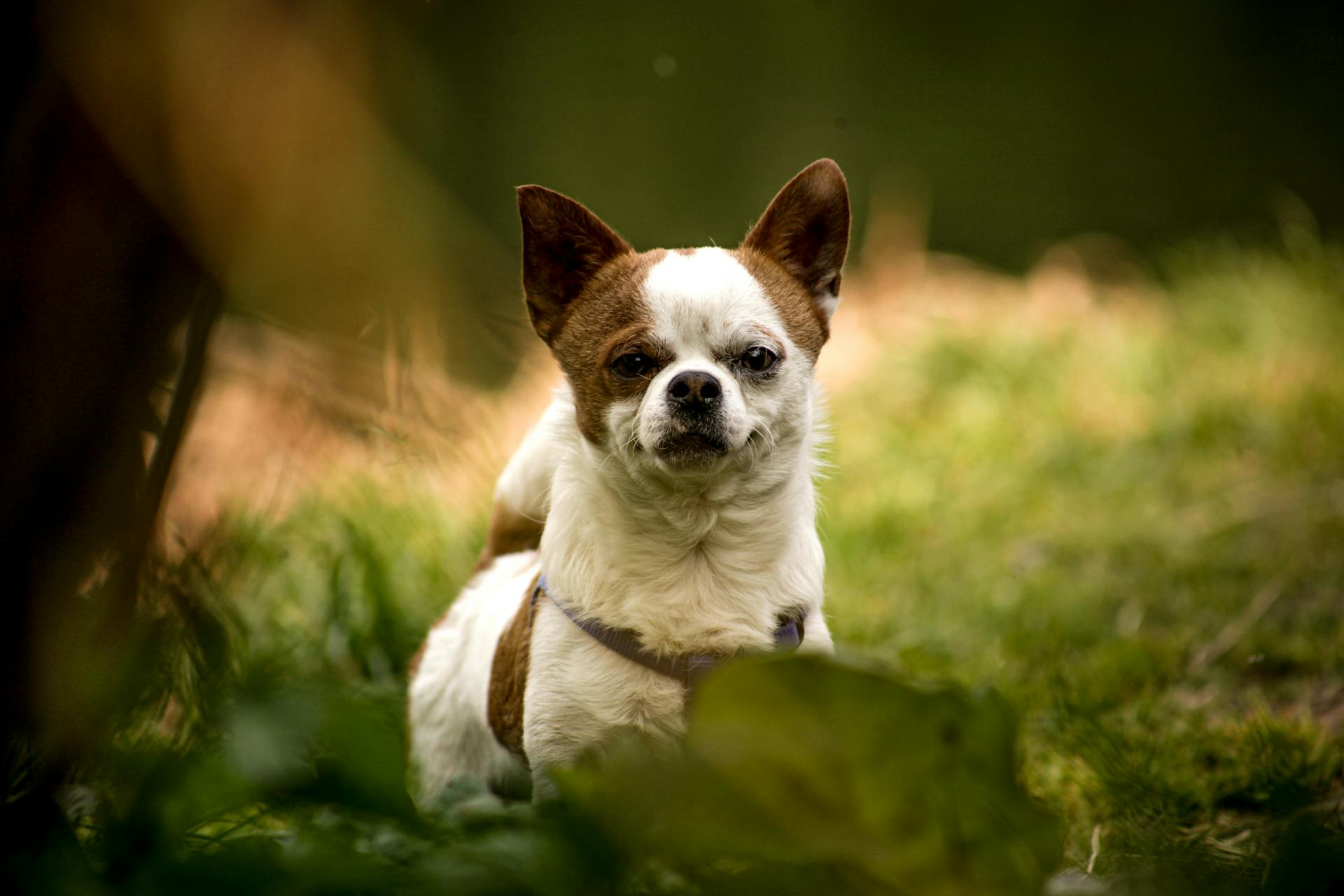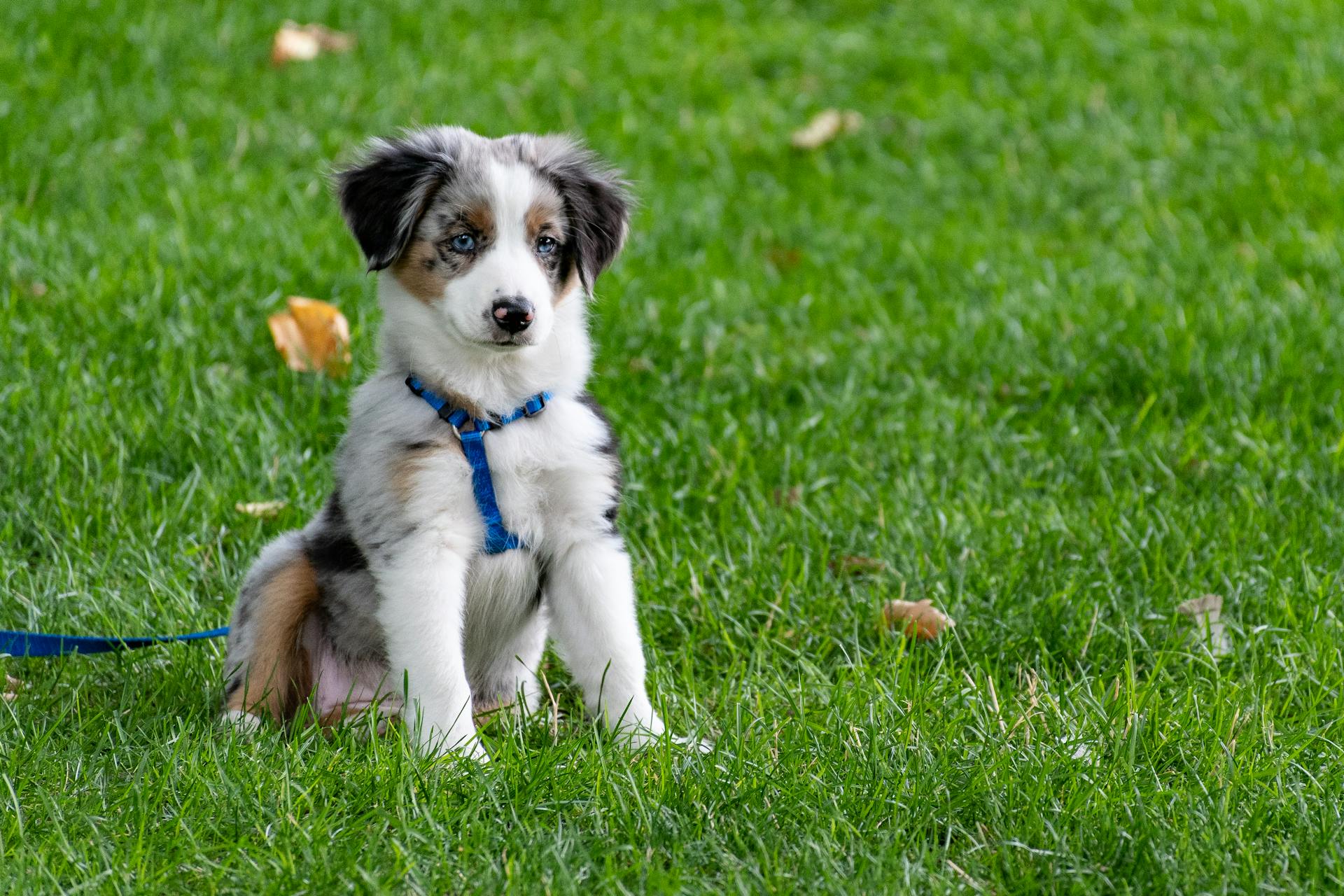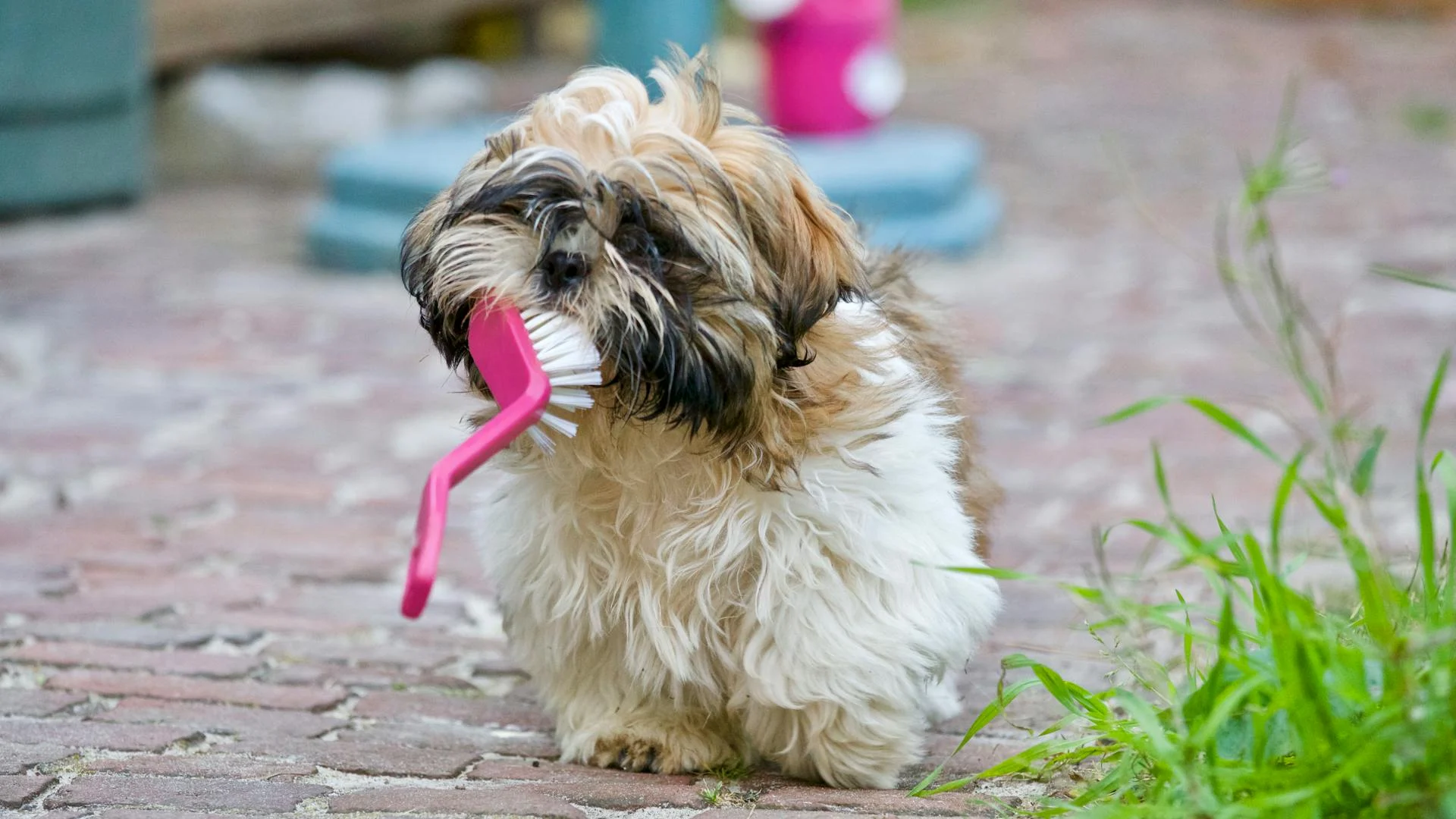
Training a Shih Poo requires patience, consistency, and positive reinforcement.
Shih Poos are intelligent and eager to please, making them highly trainable.
Housebreaking is a crucial aspect of Shih Poo training, and it's best to start with a routine that includes frequent potty breaks and positive reinforcement.
Establishing a consistent routine helps prevent accidents and makes the training process smoother.
Shih Poos are prone to separation anxiety, so it's essential to include training sessions that help them cope with being alone.
A well-structured training plan can help prevent behavioral problems and strengthen the bond between you and your Shih Poo.
Temperament and Training
Shih Poos are known for their friendly, affectionate, and playful temperament, making them great companions for families with children and other pets.
Their intelligence and eagerness to please make them relatively easy to train, but they can inherit some stubbornness from their Shih Tzu parent. Consistency and patience are key when training a Shih Poo.
Positive reinforcement techniques, such as praise, treats, and play, work best with this breed. Early socialization is crucial to ensure they develop into well-rounded dogs, and introducing them to various environments, people, and other animals during their formative months will help them grow into confident and well-behaved adults.
Shih Poos are intelligent dogs that can learn easily, but they can also be stubborn during training. They require sufficient motivation to perform, so it's crucial to find the proper reward when training your Shih Poo.
Temperament
Shih Poos are known for their friendly, affectionate, and playful temperament, making them great companions for families with children and other pets.
They inherit the Shih Tzu's loyal and loving personality, which is enhanced by the Poodle's influence, adding a touch of intelligence and agility.
Shih Poos are generally good-natured, intelligent, and eager to please, making them relatively easy to train.
They thrive on human interaction and enjoy being part of family activities, which is why early socialization is crucial for their development.
Shih Poos don't tend to get shy or nervous and aren't prone to aggressiveness, making them a great choice for families.
They get along well with people of all ages, particularly if they show them attention, and love to be petted and cuddled.
While some Shih Poos may not get along with other dogs outside of the family, they make great companion dogs for pets within the house.
They're often quiet, reminiscent of the Poodle parent, and may only bark to alert you to their needs, making them fantastic apartment dwellers.
Their energetic and lively nature makes them perfect for playing games and interacting with their owners, but they can also be patient and affectionate companions for kids and older individuals.
Trainability
Shih Poos are generally intelligent and eager to please, making them relatively easy to train. They thrive on human interaction and enjoy being part of family activities.
Positive reinforcement techniques, such as praise, treats, and play, work best with this breed. Consistency and patience are key, as Shih Poos can sometimes be stubborn.
Early socialization is crucial to ensure they develop into well-rounded dogs. Introducing them to various environments, people, and other animals during their formative months will help them grow into confident and well-behaved adults.
Shih Poos can inherit some stubbornness from their Shih Tzu parent, making them sometimes difficult to train. However, with patience and consistency, they can learn quickly.
Here are some key takeaways for training a Shih Poo:
- Use positive reinforcement techniques, such as praise, treats, and play.
- Be consistent and patient, as Shih Poos can be stubborn at times.
- Early socialization is crucial for their development.
- Find the proper reward to motivate your Shih Poo during training.
- Brief, frequent training sessions are best for puppies.
Training a Shih Poo requires patience, consistency, and positive reinforcement. With the right approach, they can learn quickly and become well-behaved adults.
Do They Bark?
Shih Poos can be somewhat vocal. Their tendency to bark is often inherited from their Shih Tzu parent. Early training can help manage excessive barking. Despite their small size, they can make good watchdogs, alerting their owners to newcomers.
Exercise and Health
Shih Poos are energetic dogs that require regular exercise to stay physically fit and mentally stimulated. They enjoy daily walks and playtime in a secure yard, which helps prevent boredom and undesirable behaviors.
A couple of short walks each day is usually sufficient to meet their exercise needs, but this can be supplemented with play at varying intervals. Playtime doesn't have to be reserved for the outdoors, as they can burn off energy by playing with toys indoors.
Since Shih Poos are small in size, they're not suitable for owners who want to take their dogs on long hikes or walks unless they're willing to carry them. However, they perform well in dog sports like agility, which can be a great way to work their mind and body simultaneously.
Exercise Needs
Shih Poos have moderate exercise needs, which means they require daily walks, playtime, and interactive games to stay physically fit and mentally stimulated.
A couple of short walks daily, combined with playtime, is usually sufficient to meet their exercise needs. However, they can adapt to more active lifestyles if needed.
Shih Poos are energetic dogs, but their small size means they don't require a lot of space to exercise. Two short walks each day are ideal, but playtime can be substituted with indoor play sessions during inclement weather.
Playtime doesn't have to be reserved for the outdoors, as Shih Poos can burn off energy by playing with toys indoors. This makes them suitable for apartment living, where outdoor space may be limited.
Shih Poos perform well in dog sports like agility, which can be a great way to work their mind and body simultaneously. They are not suitable for owners who want to take their dogs on long hikes or walks unless they want to carry them.
Common Health Issues
As you start exercising with your Shih Poo, it's essential to be aware of some common health issues that can affect them.
Teary eyes are a common problem in small breeds like Shih Poo. Regular grooming can help reduce tear stains.
Lung disorders can be a concern for Shih Poo owners, especially if their dog is prone to breathing difficulties.
Some health issues that Shih Poo are prone to include Von Willebrand’s disease and Intervertebral disc disease.
Here are some health issues to watch out for:
- Teary eyes
- Lung disorders
- Von Willebrand’s disease
- Intervertebral disc disease
Care and Maintenance
Shih-Poos need regular exercise to stay healthy, so plan for daily walks and playtime to keep them active.
Puzzle toys can provide mental stimulation for your Shih-Poo, keeping them engaged and entertained.
Microchipping your Shih-Poo is highly recommended, as it can help them be reunited with you more quickly if they ever get lost.
Diet
When caring for your Shih-Poo, it's essential to consider their dietary needs. Shih-Poos thrive on a well-balanced diet.
Their small size requires foods rich in nutrients and appropriately portioned.
Always consult with your vet for dietary advice tailored to your pet's unique needs.
Shih Care
Shih-Poos are an active breed and need regular exercise to stay healthy.
They enjoy a good romp around the yard to take care of their physical needs.
Puzzle toys can provide mental stimulation, which is essential for their overall well-being.
Microchipping your Shih-Poo is highly recommended to ensure they can be reunited with you quickly if they ever get lost.
A microchip is a small investment that can provide big peace of mind.
Living Needs
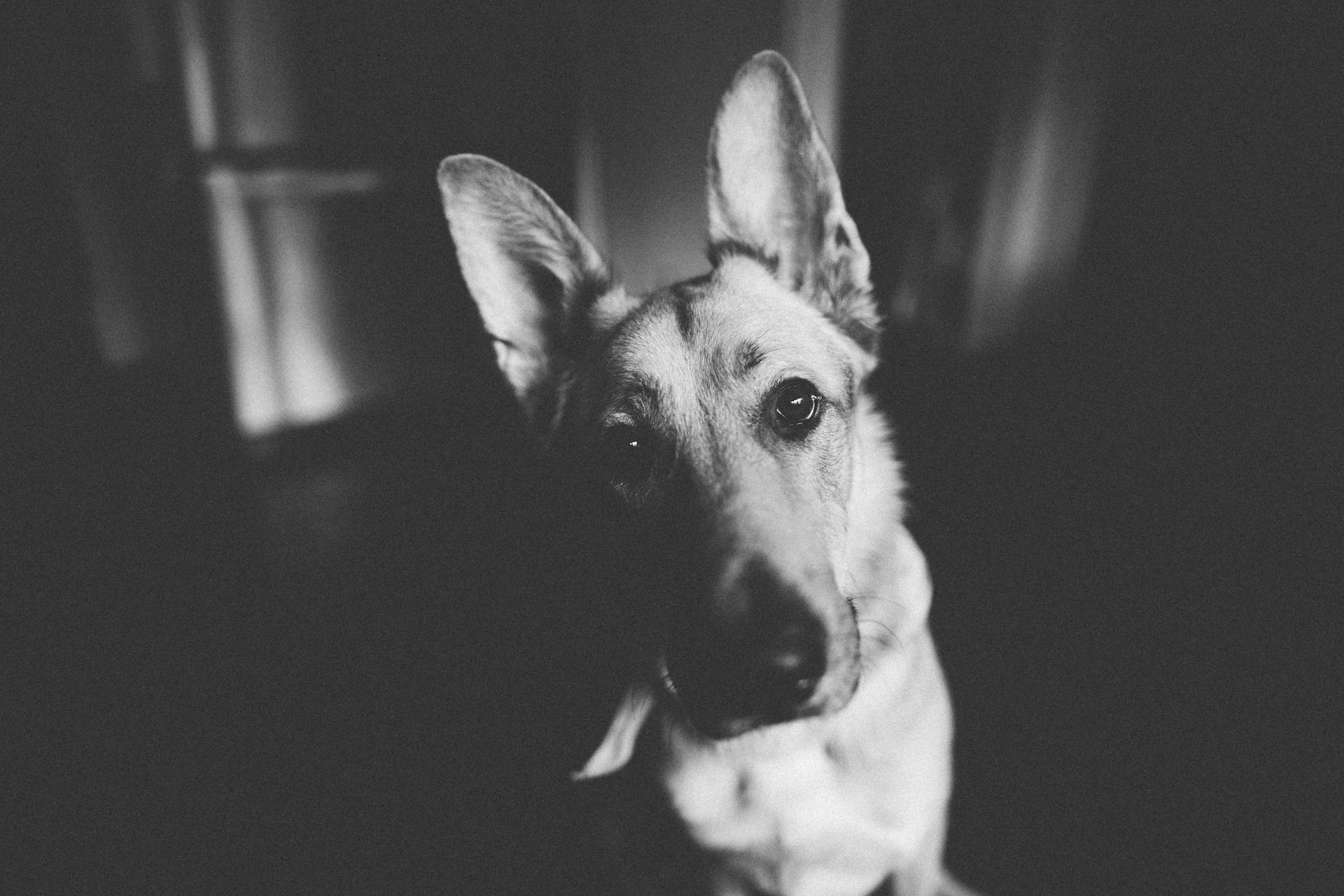
When it comes to providing a suitable living space for your Shih Poo, remember they don't require a lot of space.
A couple of short walks each day, combined with playtime, is usually sufficient to meet their exercise needs.
Shih Poos are adaptable dogs that can thrive in various living situations, from apartments to houses with yards.
Training and Behavior
Training a Shih Poo can be a rewarding experience due to their intelligence and eagerness to please. Positive reinforcement techniques, such as praise, treats, and play, work best with this breed.
Early socialization is crucial to ensure they develop into well-rounded dogs. Introducing them to various environments, people, and other animals during their formative months will help them grow into confident and well-behaved adults.
Shih Poos are intelligent dogs that can learn easily, but don't let this fool you into thinking they're always easy to train. Their high intelligence means they can learn the wrong habits just as easily as the right ones.
House training can be especially hard, sometimes taking months, due to their stubborn nature. However, with patience, you can train your Shih Poo to become a well-behaved adult.
The key to successful training is to make the sessions enjoyable, engaging, and rewarding for your furry friend. This can be achieved by using positive reinforcement techniques and consistency.
Behavior and Personality
Shih Poos are known for their delightful personalities, combining the best traits of both parent breeds.
Their playful nature makes them a joy to be around, and their love for companionship ensures they'll always want to be by your side.
Shih Poos inherit the Shih Tzu's love for companionship and the Poodle's intelligence, making them both cuddly and smart.
They're often described as confident and adaptable, making them great pets for various households.
These little dogs love to please their people, which makes training a breeze if you use positive reinforcement techniques.
Their intelligence also means they can learn quickly and pick up on commands with ease.
Their loving nature makes them a great addition to any family, and with proper training, they'll thrive in their new home.
Training
Training a Shih Poo can be a rewarding experience due to their intelligence and eagerness to please.
Positive reinforcement techniques, such as praise, treats, and play, work best with this breed. Consistency and patience are key, as Shih Poos can sometimes be stubborn.
Early socialization is crucial to ensure they develop into well-rounded dogs. Introducing them to various environments, people, and other animals during their formative months will help them grow into confident and well-behaved adults.
Shih Poos are intelligent dogs that can learn easily, but don't let this fool you into thinking they're always easy to train. Their high intelligence means they can learn the wrong habits just as easily as the right ones.
House training can be especially hard, sometimes taking months, due to their stubborn nature. With patience, you can train your Shih Poo to become a well-behaved adult.
Shih Poos are generally intelligent and eager to please, which can make them relatively easy to train, but they can inherit some stubbornness from their Shih Tzu parent.
The key to training a Shih-Poo is to make the training sessions enjoyable, engaging, and rewarding for your furry friend.
For another approach, see: Why Are Shih Tzus so Stubborn
Things to Know
Shih-Poos are an active breed and need regular exercise to stay healthy. They enjoy a good romp around the yard, which can take care of their physical needs.
Puzzle toys can provide mental stimulation for your Shih-Poo, helping to keep them engaged and active.
Microchipping your Shih-Poo is highly recommended, as it can help them be reunited with you more quickly if they ever get lost.
Adoption and Ownership
Before bringing a Shih-Poo into your home, make sure to do your research and prepare for their active and affectionate nature.
They require regular exercise to stay happy and healthy, so if you're someone who loves outdoor activities like hiking, a Shih-Poo could be the perfect companion.
To ensure a smooth transition for both you and your new pet, prepare your home and family for the added love and energy a Shih-Poo will bring.
Adopting a Pet
Adopting a Pet can be a life-changing experience, and it's essential to do your research before bringing a new furry friend home.
They're an active and affectionate breed, so be prepared for regular exercise and grooming needs.
If you're someone who loves outdoor activities like hiking, a dog could be the perfect companion.
Shih-Poo's love being a part of the family's activities, so make sure you're ready to include them in your daily life.
Regular exercise is crucial for their physical and mental health, so plan for daily walks and playtime.
Grooming is also a must, as they require regular attention to their coat and overall appearance.
With the right preparation and care, adopting a pet can be a truly rewarding experience.
Discover more: Shih Tzu Trimmed
Parents of
The parents of the Shih-Poo are an important consideration for potential owners. The Shih-Poo inherits its characteristics from its two parent breeds: the Poodle and the Shih Tzu.
The Poodle is a highly intelligent and active breed, known for its low-shedding coat. The Shih Tzu, on the other hand, is a friendly and outgoing breed with a long, flowing coat.
Both parent breeds are popular companions, with the Poodle often used as a therapy dog and the Shih Tzu known for its affectionate nature.
Additional reading: Shih Tzu Coat
Pet Compatibility
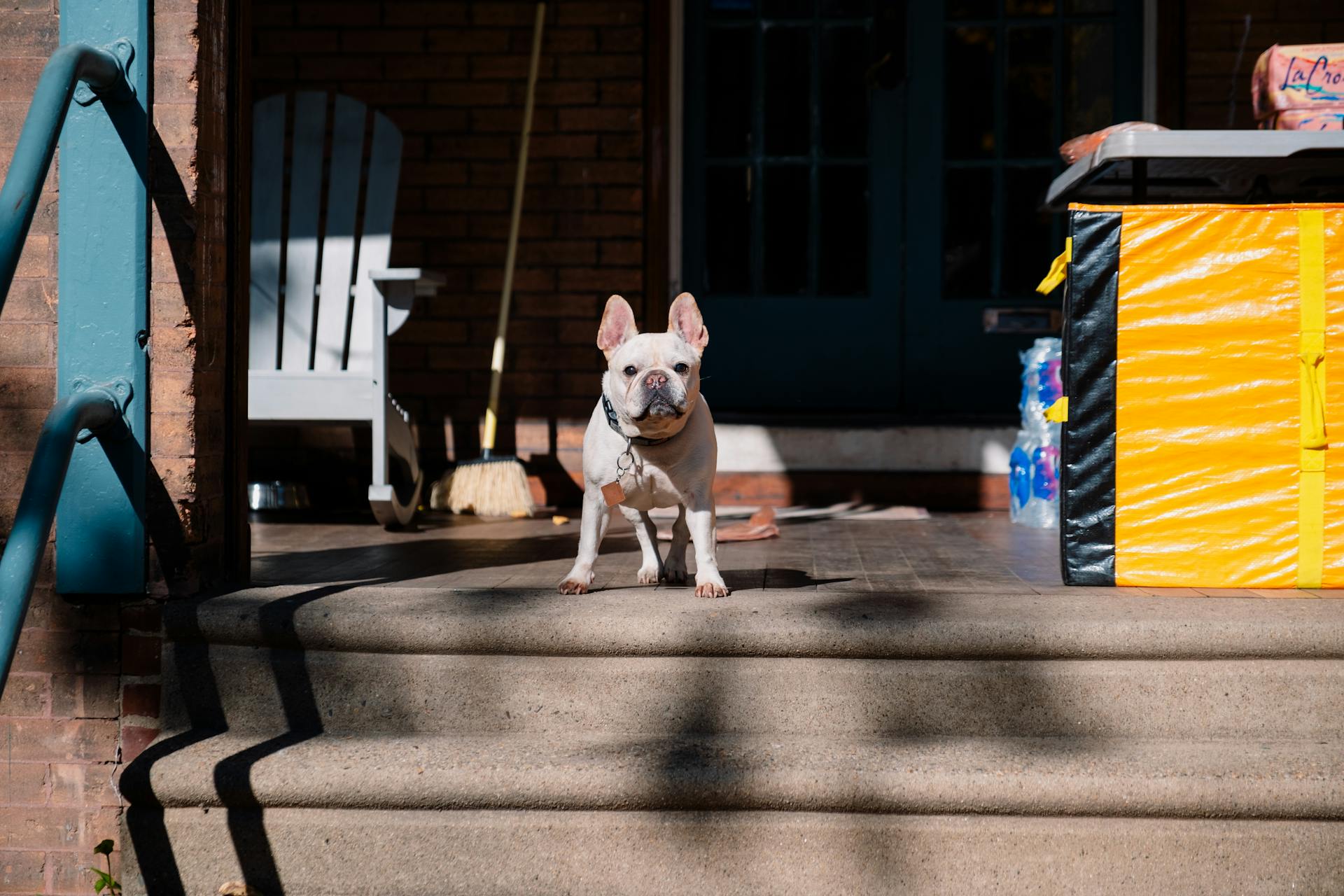
The Shih Poo is a friendly dog that gets along well with most pets. They make great companions for families with other pets.
Introducing your Shih Poo to other pets at a young age is crucial, so they consider other animals as part of the family.
Shih Poos don't cope well with being alone for long periods, so it can be helpful to have a companion dog to alleviate boredom and loneliness.
Explore further: Why Is My Shih Tzu so Itchy
Frequently Asked Questions
How to raise a Shih Poo?
To raise a happy and well-adjusted Shih Poo, provide plenty of companionship, regular grooming, and rewards-based training in an indoor home. With proper care, Shih Poos can thrive with families of all ages and even other pets.
Can I leave my Shih Poo alone for 8 hours?
For 8 hours is generally considered the maximum time to leave a Shih Poo alone, but daily extended absences may require alternative care arrangements. Consider doggy daycare or a professional dog walker for frequent daily departures.
What age does a Shih-Poo calm down?
Shih-Poo calmness typically develops between 1 to 2 years old, but individual temperaments can vary due to factors like training and genetics. With patience and consistent training, your Shih-Poo can learn to calm down and develop good behavior.
How do you discipline a Shih Tzu?
Disciplining a Shih Tzu requires positive reinforcement with treats and praise, as scolding can have the opposite effect. Rewarding good behavior is key to a well-behaved Shih Tzu.
Do Shih Poos like to cuddle?
Yes, Shihpoos are known to be affectionate and love to cuddle with their family members. They thrive on attention and interaction, making them ideal companions for those who enjoy snuggles and playtime.
Featured Images: pexels.com
